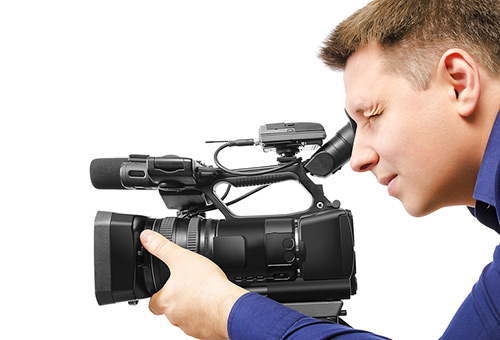Full-Service Legal Videography for Recording Legal Proceedings.
Full-Service Legal Videography for Recording Legal Proceedings.
Blog Article
The Role of Lawful Videography in Depositions and Tests
Legal videography has actually emerged as an important tool in both depositions and trials, providing a multifaceted technique to documenting witness statements. As legal professionals progressively acknowledge its worth, it triggers a deeper evaluation of exactly how these visual records can affect juror understandings and trial end results.

Significance of Legal Videography
Legal videography plays an essential duty in the documents and presentation of depositions and trials. This specific field integrates technical skills with legal knowledge to develop a reputable record of proceedings that can considerably affect instance end results. The appearance of legal videography boosts the understanding of witness testament, permitting jurors and judges to observe not just the talked words but also the behavior, feelings, and body language of the witnesses.
Additionally, lawful videography provides an objective account of events, reducing the potential for misconception that can occur with created transcripts alone. This aesthetic documents acts as a crucial tool throughout trial discussions, facilitating a clearer and more convincing story for both plaintiffs and offenders. The ability to replay video segments during court proceedings allows legal groups to emphasize essential points, strengthening their debates successfully.
The value of legal videography prolongs past the court room; it additionally plays an important function in preserving proof for future reference, whether for charms or more lawsuit. Thus, its assimilation right into the lawful process is vital for ensuring a fair and precise depiction of the truths, eventually adding to the quest of justice.

Process of Legal Videography
While capturing the subtleties of depositions and tests, the procedure of legal videography involves several important steps that ensure high-quality, accurate recordings. At first, a specialist legal videographer prepares by reviewing the instance materials and understanding the particular requirements of the deposition or test. This preparation includes familiarizing themselves with the participants and the context, which aids in recording essential details.
On the day of the recording, the videographer establishes the required tools, which usually includes high-definition cameras, microphones, and appropriate illumination. Ensuring optimal angles and audio quality is critical, as it directly impacts the efficiency of the recording. The videographer interacts with attorneys and individuals to establish procedures, making certain that everybody comprehends the recording process.
Throughout the deposition or test, the videographer meticulously tape-records the proceedings, paying attention to both verbal and non-verbal cues. This includes recording the temperament and reactions of witnesses and attorneys. After the session concludes, the videographer may edit the footage for clarity and conformity with legal standards, generating an end product that properly shows the process for future referral and use in lawful contexts.
Benefits in Depositions
The incorporation of videography in depositions offers countless benefits that improve the total procedure of collecting evidence. One main advantage is the capability to record witness testaments with aesthetic and acoustic integrity, offering a much more precise representation of the witness's attitude, tone, and body movement. This multidimensional approach allows attorneys and juries to examine integrity more efficiently than typical written transcripts alone.
In addition, videographed depositions offer as an effective tool for protecting testimony. Must a witness come to be not available for trial, their tape-recorded deposition can be played in court, ensuring that their proof remains easily accessible and pertinent. This facet substantially lowers the danger of shedding vital information that can impact instance outcomes.

Finally, videography boosts the total professionalism of the deposition procedure, instilling confidence in customers pertaining to the thoroughness of their lawful depiction (legal videography). By leveraging technology, legal professionals can significantly boost the performance of depositions
Effect On Trials
In numerous tests, the assimilation of videography can considerably affect the presentation of evidence and the court's perception. Lawful videography catches witness testaments and crucial evidence in a dynamic layout, allowing jurors to involve with the product on multiple degrees. This aesthetic component enhances the storytelling aspect of a trial, providing context and emotional vibration that visit the website typical text-based proof may lack.
Moreover, video recordings can offer as effective devices for impeachment throughout cross-examination. When inconsistencies develop in between a witness's previous declarations and their court room testimony, video evidence provides an unbiased reference that can sway jurors' opinions. This immediacy and quality can reinforce the trustworthiness of an event's story while concurrently undermining opposing arguments.

Future Trends in Legal Videography
As we look toward the future of legal videography, a number of emerging patterns assure to reshape its duty within the court. One significant pattern is the combination of expert system (AI) in video evaluation and editing. AI can streamline the procedure of determining crucial moments in taped depositions, enabling lawyers to quickly access appropriate material, consequently improving efficiency in situation prep work.
Furthermore, the increase of online fact (VR) and augmented fact (AR) modern technologies is expected to change exactly how jurors experience proof. legal videography. By immersing jurors in a simulated setting, these innovations can offer a more profound understanding of intricate scenarios, bring about more educated deliberations
Additionally, the boosting demand for remote depositions, increased by the COVID-19 pandemic, will likely continue. Lawful videographers will need to adapt to brand-new software program and systems to guarantee top notch recordings check my site in virtual setups.
Lastly, the growing focus on data protection will certainly require more stringent methods for keeping and sharing video clip proof. As the legal landscape develops, lawful videographers must stay abreast of these patterns to preserve their relevance and performance in the judicial process.
Final Thought
In recap, lawful videography serves an important feature in the judicial process, boosting the integrity of depositions and tests. As innovation continues to advance, lawful videography is poised to additional change its duty within the legal landscape.
Report this page